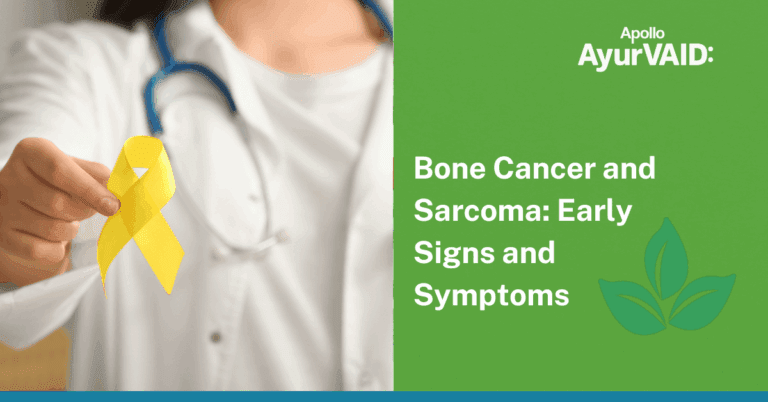Parkinson’s disease is a neurodegenerative disorder that affects millions of individuals worldwide. As it progresses, it can severely impact a person’s quality of life, leading to motor and non-motor symptoms. While conventional medicine remains essential in managing Parkinson’s, integrative wellness practices based on traditional knowledge systems like Ayurveda may support cognitive health and general well-being.

Understanding Parkinson's Disease
Parkinson’s disease primarily arises due to the loss of dopamine-producing cells in the brain. This neurotransmitter is crucial for controlling movement and regulating mood. There are two main types of Parkinson’s: Idiopathic Parkinson’s Disease (IPD) and Atypical Parkinsonian Syndromes (APS). IPD is the most common form and usually affects individuals over the age of 60, although early-onset cases do occur. APS, on the other hand, encompasses a group of neurodegenerative disorders that share some symptoms with IPD but tend to progress more rapidly.
Signs & Symptoms of Parkinson’s
The hallmark symptoms of Parkinson’s disease are motor-related, including tremors, rigidity, bradykinesia (slowness of movement), and postural instability. As the disease advances, individuals may also experience non-motor symptoms such as depression, anxiety, sleep disturbances, and cognitive impairment. In advanced stages, Parkinson’s disease can lead to significant complications. These may include difficulties with daily activities, impaired speech and swallowing, and an increased risk of falls and injuries. Cognitive decline, ranging from mild cognitive impairment to dementia, is also a concern. The main causes of Parkinson’s are genetic and environmental factors, but there are risk factors associated with it such as –
- Age – older adults above the age of 65
- Family history
- Sex – Men are more prone
- An episode of stroke that causes symptoms of Parkinson’s

Traditional Perspectives on Neurological Imbalance
In Ayurveda Parkinsonism is mainly known as Kampavata, which is a type of Vatavyadhi or Vata disorders. Any direct reference to Parkinsonism is not found directly in the Ayurveda texts and refers only to related symptoms including tremors. Thus, the condition is referred to in the modern Ayurveda literature by various names for tremors: Kampavata (tremors due to vata), Vepathu (shaking, as in being off track or out of alignment), Prevepana (excessive shaking), Sirakampa (head tremor), Spandana (quivering), and Kampana (tremors). Ayurveda offers a whole-person approach to health that complements conventional treatments. In the context of advanced Parkinson’s disease, Ayurveda interventions focus on enhancing cognitive function, thereby improving overall well-being.
Here are some ways in which Supportive Ayurvedic Practices for Cognitive and Physical Health:
Customized Herbal Formulations – These medicines help improve energy levels and combat fatigue, common in advanced Parkinson’s. Additionally, supports mental clarity and cognitive function, addressing one of the key concerns in advanced stages of Parkinson’s disease.
Panchakarma Therapy – Panchakarma helps eliminate toxins from the body, promoting overall detoxification and potentially alleviating symptoms of Parkinson’s disease. Tailored herbal oils are used in Abhyanga to reduce muscle stiffness, promote relaxation, and improve blood circulation. This can be particularly beneficial for individuals with Parkinson’s who experience rigidity.
Dietary Recommendations – A diet focused on balancing Vata dosha is recommended. This could include warm, nourishing foods like cooked grains, soups, and well-cooked vegetables. Avoiding cold, raw, and processed foods is typically advised.
Lifestyle Modifications – A consistent daily routine or Dinacharya can help regulate the body’s natural rhythms, supporting overall health and well-being.
Pranayama Techniques – Breathing exercises like Anulom Vilom and Bhramari can promote relaxation, reduce stress, and improve lung capacity.
The primary goal of Ayurveda therapy is to restore the lost sensory-motor functions of patients with Integrative care and sustained well-being. AyurVAID’s specialized neuro-rehab multispecialty program provides a comprehensive approach to neurological conditions such as Parkinson’s, and stroke rehabilitation with the aim of managing the patient’s disease, facilitating recovery, and significantly improving their quality of life.Supportive Ayurvedic Practices for Cognitive and Physical Health
At AyurVAID, treatment is pursued under the guidance of a qualified practitioner who is well-versed in both Ayurveda and Parkinson’s disease. Additionally, our integrative approach and overall treatment plan include close communication with conventional medical care.






